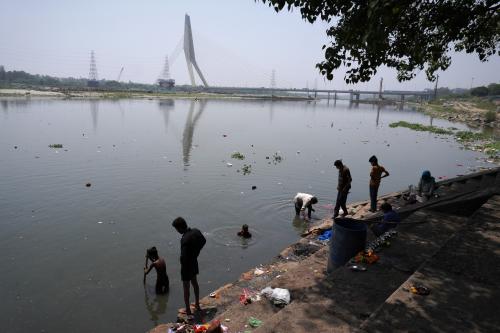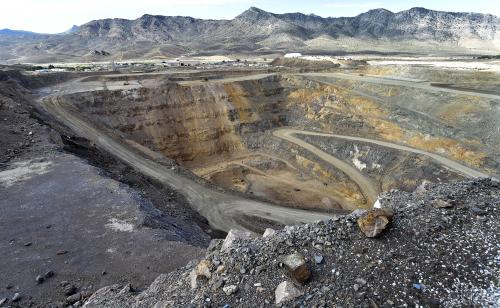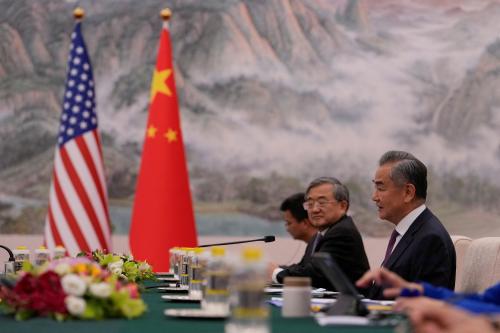In France, as in other countries, rising fuel prices-and the recent street protests they provoked-have given new relevance to the question of energy independence. Within the French context, the issue has focused on the role of nuclear energy. Nuclear power plants account for 80 percent of electrical production in France. Yet France’s nuclear power stations will reach the end of their design life in 2010. Fundamental decisions must be made now about if and how they should be replaced.
Elsewhere in the world reliance on nuclear power is declining, mainly because of a growing concern about the environment, but also because Chernobyl created an unprecedented trauma that has been reflected in public opinion. The general public today is less willing to run the risks involved in nuclear energy production. An incident in September 1999 at a nuclear power plant in Tokaimura, Japan, provided a sharp reminder of the risks involved. Considered to be the most dangerous nuclear accident since Chernobyl, the Tokaimura incident left one employee dead and eventually compelled the Japanese government to scale back its nuclear power plant construction program. And Japan is not an isolated example. New nuclear power plant construction programs around the globe have been reduced or eliminated entirely. In Europe, nuclear energy users such as Sweden and Germany are staging a gradual withdrawal. Given this general trend, the question remains whether France can afford to go against the tide. France will soon have to decide whether to renovate its 58 nuclear reactors or to dismantle its nuclear energy program. The complete renovation of France’s nuclear power stations would cost approximately $1 trillion. With other options, such as natural gas, appearing equally credible, many question whether such an investment in nuclear energy would make sense.
Until recently, nuclear power has been cheaper than any other source of electricity, including gas or coal. But technical improvements in the design of gas turbines have led to greater thermal efficiency and cheaper electrical generation from fossil fuels. Moreover, the initial investment to build a gas-fired thermal station is only one-fourth that required to build a nuclear power station. This means that the future of the nuclear power sector in France depends primarily on trends in the future cost of oil and natural gas. If the prices of gas and oil remain at current levels, a gradual move to close France’s nuclear power plants may prove to be most cost effective. This is the solution that was proposed by a study commissioned by the French Prime Minister and conducted by experts, Jean-Michel Charpin, Benjamin Dessus and René Pellat. The final report, Economic Forecast Study of the Nuclear Power Option, was published on July 28, 2000. But this finding assumes that fossil fuels will not become more expensive, an assumption that is by no means a certainty today.
Faced with this uncertainty, the report argues that energy conservation remains the most efficient means to meet future energy targets. Indeed, on the occasion of The Hague international conference on the environment in November 2000, Prime Minister Lionel Jospin announced an ambitious program to cut energy consumption by 15 percent. But France should not expect miracles from conservation. Government programs to reduce energy consumption between 1973 and 1993 had little effect, in part due to continual changes of governments and to an inconsistent set of policies that resulted from it. By 1985, the return of inexpensive international oil meant that France had less reason to save, and energy conservation policies were virtually abandoned from that time on.
French energy consumption has since sky-rocketed. Despite the recent increase in oil prices, French consumers do not appear to be lowering their energy consumption, especially in heating and transportation. The French energy bill rose by 27% in the single year from 1998 to 1999. The drastic increase of oil prices beginning in March 1999 has contributed to a further rise in France’s energy bill, as has the parallel increase in household consumption of energy. The prospect for successful conservation clearly depends on how much money the French government is ready to invest in energy savings projects. France has to date invested far less in this area than has the United States. Even under optimistic assumptions about future energy consumption, France still needs a new strategy to manage energy production.
A series of government reports have considered the energy crisis as an issue of French energy independence. But the progressive liberalization of energy markets within Europe makes any isolated approach to national energy policy impossible. Whereas France today produces 50 percent of its own energy, this self-sufficiency is expected to sink to 35 percent by 2020. Moreover, France’s nuclear exception within Europe raises the question of whether the French public will accept to bear alone the burden of producing nuclear power for Europe. A recent opinion poll showed that 40 percent of the French public opposes the use of nuclear power to supply at least 75 percent of French electricity. At the same time, a vast majority of the French public favors the liberalization of France’s electricity market, as long as it brings financial advantages. But will the French accept sharing nuclear energy with countries who refuse to have nuclear reactors on their own soil?
France has fewer options for electricity generation than do its industrial partners. Those countries still have the possibility of replacing their older coal-fired power stations with new gas ones, or even to build new nuclear power stations. In Sweden and Germany, public concerns about radioactive waste have led their governments to close their nuclear plants entirely. But the French government does not have this option, due to a combination of factors.
First, France undertook commitments at the Kyoto conference to reduce its carbon dioxide emissions in 2010 to 1990 levels. This will require a 105 million ton reduction in carbon output per year. Yet projections based on current use show an annual increase of 15-27 million tons. Any move to eliminate nuclear generation would only aggravate this mismatch in France, since there is no provision in the Kyoto agreement allowing for countries to increase greenhouse gas emissions to offset lower levels of nuclear waste production. Some effort is being made to encourage renewable energies as an alternative to nuclear or fossil fuels in France. During the September 2000 climate conference in Lyons, Prime Minister Jospin promised a new emphasis on renewable energy sources. He wants to compel electricity distributors to buy back, at reduced prices, electricity generated by wind or sun power. Similar incentives in Spain and Germany have led to a boom in renewable energy supplies. But no one expects for them to have a significant short-term impact on greenhouse gas emissions.
The Jospin government has also proposed a special tax on polluting industries (the global tax on polluting activities, or GTPA). This legislation is still pending, and the French Council of State has declared several of its clauses unconstitutional. But it remains unclear what impact the GTPA, if passed, would have on energy use. French industry is already among the most energy efficient in the world. French companies use comparatively less energy than do their foreign counterparts. This means that new efficiencies from industry will be difficult or costly to impose. The transport sector is one area of potential conservation. Energy consumption in transportation rose by 3.7 percent in 1999. Transportation is also the most polluting sector, accounting for 22 percent of greenhouse gas emissions. The large and growing number of cars in France will aggravate this situation. Truck traffic has also been growing, at 8.7 percent in 1999 and 4.1 percent in 1998. But this is a politically powerful sector to which the government has proved unable to apply energy restrictions. Trucking labor unions have a strong veto power with the government. Rail transport, the alternative to trucking, has actually been declining in France as energy costs have been rising.
The French government will soon have to answer some difficult questions. Which energy choices must France make to meet its growing electricity consumption up to 2050? What are the economic advantages of nuclear power, as compared with other energy supplies? What are the other non-nuclear technologies France can actually use? And when will France be ready to use them? Lionel Jospin has very little room to maneuver. His current “multiparty” government will require compromises. On the one hand, the Prime Minister has to make concessions to his Minister of Environment, Dominique Voynet, who comes from the Green party. On the other hand, he has to reassure his Industry Ministry that measures to protect the environment will not hurt producer interests. Above all, less than two years remain before the next presidential elections. This leaves Jospin very little time to make choices that will be vitally important to France’s energy policy.
A compromise option seems most likely to be selected by Jospin’s energy experts. This approach would extend the design life of current nuclear power stations from the current 30 years to 45 years. This solution presents at least two advantages. Economically, it should represent a 6 percent saving on energy cost. But above all, this option allows politicians as well as scientists to delay big decisions no one seems ready to take.
Baudouin Bollaert is Chief Editor of the editorial pages of Le Figaro. He was previously Le Figaro’s Chief Editor on French Politics.



Commentary
French Nuclear Power and Its Alternatives
January 1, 2001